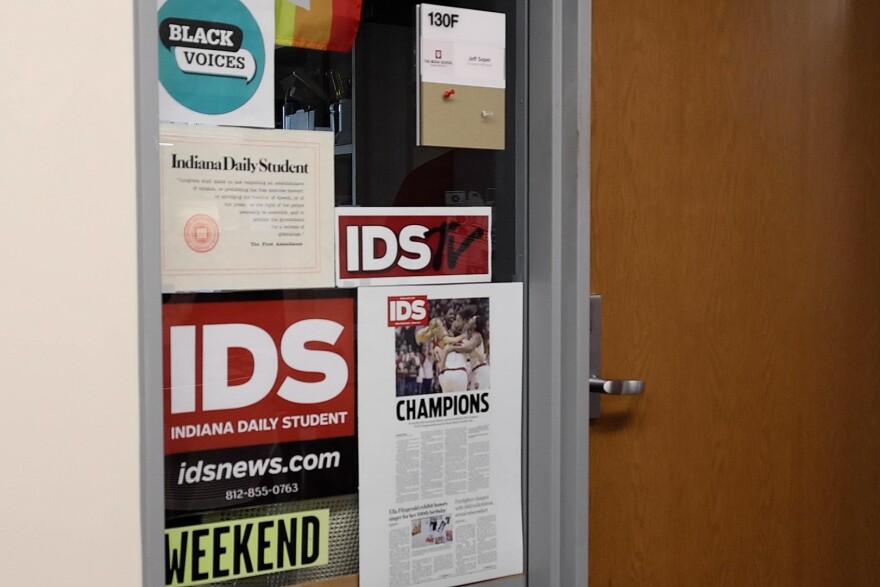The Indiana Daily Student will resume print editions after Indiana University Bloomington Chancellor David Reingold reversed course on his decision to end them.
In a letter to the IDS editors, Reingold said he will allow the paper to use its budget through the end of the fiscal year as the editors see fit. He also called for a “reset” with the paper and asked to “affirm what unites us.”
IDS co-editors-in-chief Andrew Miller and Mia Hilkowitz described it as a win for student media but cautioned the campus community against considering the matter resolved.
“We do want to make sure that we ourselves and our community and our faculty and our alumni and everybody keep the administration here to their word,” Miller said to WFIU/WTIU News. “Thus far, it's been kind of hard to trust their word, quite honestly.”
“The last time IU had a committee to look at student media, they didn't fully follow their recommendations,” Hilkowitz said, referring to a recently announced task force on press freedom and the existing student media plan. “We would want more confirmation that that's going to be binding. Also, I'm going to stand by the fact that I think our staff and the faculty and students of the media school deserve an apology.”
The university’s decision to end print editions coincided with it firing the director of student media Jim Rodenbush, who refused to remove news from a planned Homecoming edition at the university’s direction. Rodenbush has since sued IU, claiming it violated his First Amendment rights.
Since then, the perception that IU censored its student paper has cost the school at least a million dollars in donations and provoked the ire of faculty.
Reingold said the perception that he attempted to censor editorial content was “not grounded in fact.”
“Indiana University has never attempted to censor editorial content, period,” he wrote. “The IDS is, and remains, editorially independent.”
He did not address the directive given to Rodenbush to remove news from the Homecoming print issue.
Read more: Free speech foundation ranks IU as worst public college
The chancellor admitted the “campus has not handled recent matters as well as we should have. Communication was uneven and timing imperfect.”
He stopped short of an apology, saying that the decision to end print editions was a long-term financial plan to staunch the paper’s nearly $300,000 annual deficit.
The student media plan does call for limiting print to a few special editions per semester, but it also calls for preserving the IDS print product as a “critical learning experience for student media workers.”



